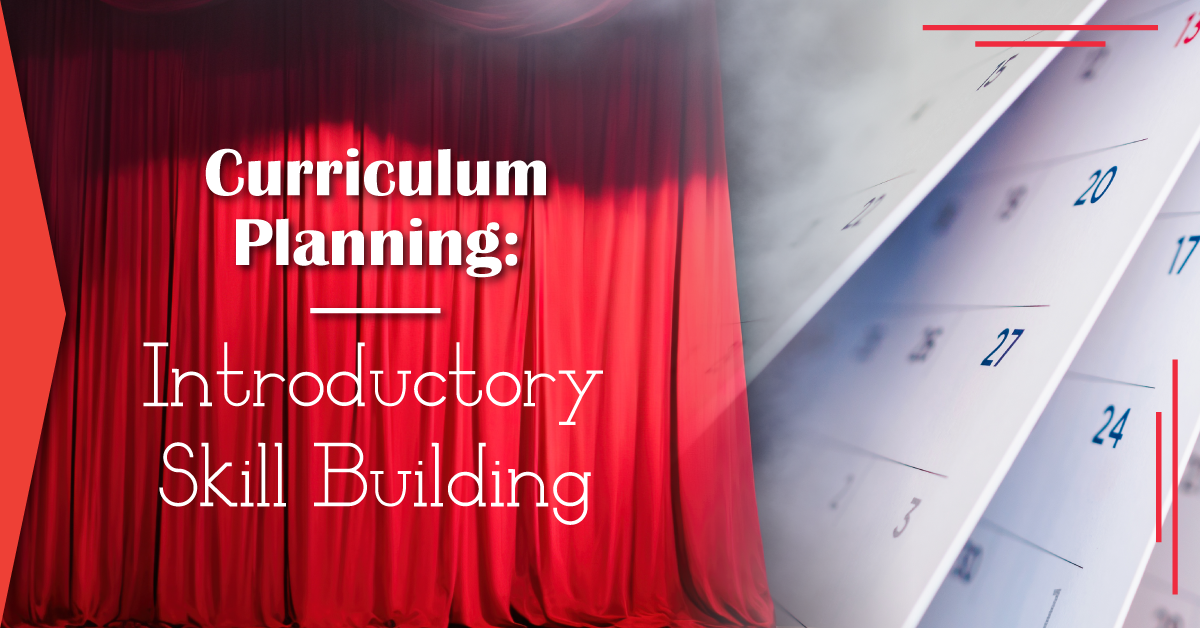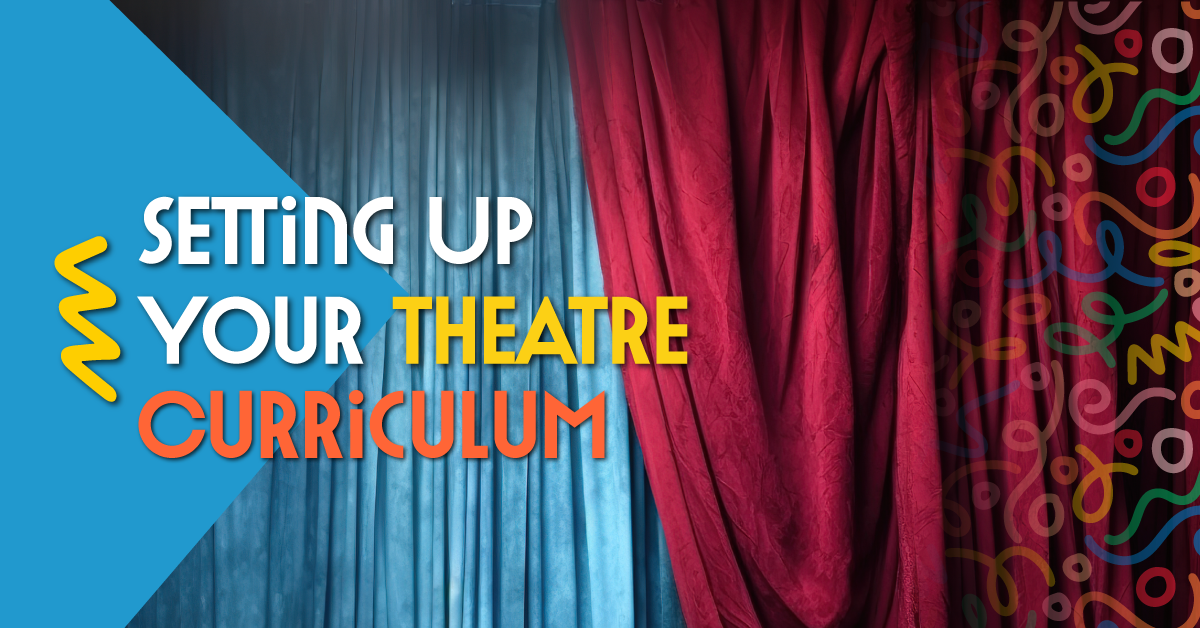Agatha Rex by Lindsay Price is a bold high school take on Antigone - packed with heart, conflict, and a powerhouse ensemble. One girl. One stand. One huge risk. *NEW COMPETITION VERSION AVAILABLE!*
Curriculum Planning: Introductory Skill Building
A well-organized curriculum plan will help you to stay calm, cool, and collected throughout the term, and will allow you to present your lessons confidently. It also helps your beginning drama students ease into the work you’re doing together. Your students who are new to drama will have varying levels of theatre-based knowledge and skill. No matter why students are taking your class, you’ll want to organize your lessons so that each class builds upon skills you’ve already taught, to help them gain confidence and grow. The goal is to provide lessons that will get them to a similar baseline of theatrical awareness and deepen their appreciation of theatre, as well as develop skills such as problem solving, creative and critical thinking, and self-expression.
The following drama curriculum suggestions are based on successful introductory performance-based programs that I have run with students ranging from grades 3 to 12. Of course, you know your students best, so adapt as needed to suit their knowledge, skills, and temperaments.
1. Classroom rules and expectations
Always start each new term with classroom expectations and rules, no matter how new or experienced your students are. What are the rules of the drama classroom, and how might they differ from, say, math or geography class? What routines will be implemented for each class — meaning, how will time be used in the drama classroom? What do you expect from your students, and what can they expect from you? How are they expected to treat one another during drama class?
Get all this information out to your students right away, in multiple forms if necessary (paper syllabus, email, posted on Google Classroom or teacher’s website, etc.). You may want to have your students (and parents/guardians, if necessary) sign and return a code of conduct for the drama classroom. Be sure to include all known dates, times, and deadlines for assignments and performances.
Boring? It doesn’t have to be. Try playing Act It Out to show students what drama class is all about. You’ll also want to include an introduction or refresher on topics such as check-ins and check-outs, bellwork, and reflections and exit slips if you plan to use them in your classes.
2. Theatre terms, etiquette, and history
Theatre comes with its own vocabulary. What’s the difference between stage right and stage left? Why is upstage both a noun and a verb? What is an ensemble? It will be helpful to create a glossary of theatrical terms for your students to get them all speaking the same theatrical language, so to speak.
Theatre etiquette continues on where classroom expectations ended off. How do you expect students to behave while rehearsing versus being an audience member? While building costumes or painting a set? How is it different from classroom expectations and why is this important to know?
This is also a good time to include a timeline overview of theatre history topics, such as Greek and Roman theatre, medieval theatre, and renaissance theatre. You can go deeper into topics as you introduce those skills (such as Greek theatre while studying masks) or do a thorough history unit all at once.
3. Non-verbal acting
Acting requires students to use their bodies, voices, and imaginations, which is a lot of work. Non-verbal acting helps students develop their storytelling and performance skills, practice making clear choices, and gain confidence in a low-stakes environment. Easing students in by focusing on just bodies and imaginations takes a lot of stress off the new drama student. Non-verbal acting also helps students improve their observation skills, as they need to be aware of what’s going on around them.
Start by working on these non-verbal exercises that focus on gestures, portraying emotions, and subtext, all without using the voice. Continue with units on mime, tableau, and/or mask work. From there, you could move towards clowning, which can be non-verbal or verbal.
4. Scripted acting
Before introducing scripts, you’ll want to cover topics such as character development, scene analysis, and rehearsal techniques. From there, you can jump into scripts! I usually do two-person scenes first, then move on to small group scenes, as it’s easier to start with one partner before adding in more people. Two-person and group scene work can be a major unit if you want it to be, by rotating group members and presenting a variety of scripted scenes. You could also have students write and present their own scenes.
From there, you can work towards monologues. Why group scenes before monologues? It’s super nerve-wracking and vulnerable to perform all by yourself!
Once you’ve tackled monologues, you may want to work on audition techniques and have students go through mock auditions, especially if you’re planning a class or school production.
5. Specialty topics
Playwriting, devised theatre, puppetry, introductory technical theatre (lighting, sound), introductory theatrical design (costumes, props, sets, hair and makeup), musical theatre (singing, dancing), stage management, producing — these are just some of the many exciting topics you can explore with your students. You will not have time to cover all these topics in an introductory course, but that is what upper years and specialty classes are for. If your schedule and budget allows, bringing in guest instructors or holding specialty workshops can really enhance your class work, and potentially pique your students’ interest in studying different areas of theatre in the future.
A note on improvisation: “Improv” is an important topic in the drama classroom, but where it fits in the curriculum can vary. Some teachers prefer to teach it after non-verbal acting but before scripted acting, so students can explore thinking on their feet, active listening, and creative expression before focusing on precise script work. Other teachers prefer to teach it after scripted acting, to impress the importance of staying letter-perfect to the written lines and avoiding paraphrasing. As we always say, you know your students best, so schedule your improv classes wherever they best fit in your curriculum to suit their needs.
How do you plan your curriculum? We’d love to hear from you. Share with us on our Facebook or Instagram pages!



